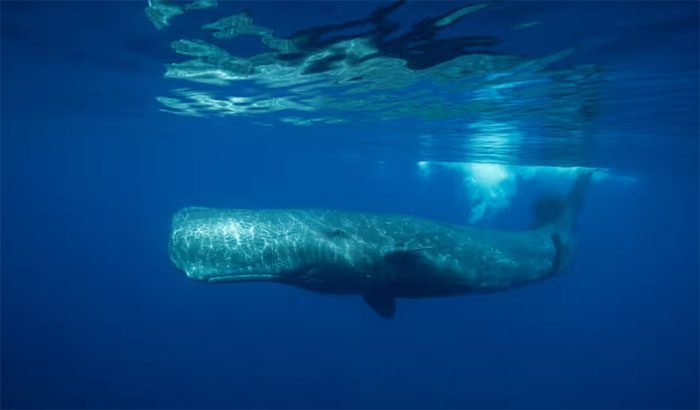The sperm whale sanctuary covers an area of approximately 800 square kilometers, nearly the size of Dominica, located in the waters off this island nation.
In an announcement regarding the establishment of the sperm whale sanctuary, Prime Minister of Dominica Roosevelt Skerrit stated that the sanctuary will host 200 sperm whales, which are regarded as cherished “citizens” of Dominica.

It is estimated that around 500 sperm whales live in the waters surrounding Dominica – (Photo: Wildestanimal/Getty Images).
Emphasizing that Dominica feels honored to establish the world’s first sperm whale sanctuary, Prime Minister Skerrit mentioned that the sanctuary’s creation will not only boost tourism revenue but also contribute to carbon separation and sequestration in the deep sea. This is an often-overlooked benefit of whale conservation.
Mrs. Francine Baron, executive director of Dominica’s Climate Resilience Authority, stated that the boundaries of the sanctuary will be determined based on studies of areas that can provide food and habitat for approximately 50 families of sperm whales.
For now, vessels longer than 18 meters will not be allowed to pass through the sanctuary area, while small-scale, artisanal fishing remains permitted.
Additionally, authorities are considering opening a corridor to allow boats to dock in Roseau, the capital and largest city of Dominica.
Conserving sperm whales also brings climate benefits due to their waste. Sperm whales dive to hunt squid, then swim back to the surface to breathe, rest, and defecate. Their waste stimulates the growth of plankton, which can sequester CO2 from seawater. When plankton die, they become a “carbon sink,” helping to mitigate the impacts of climate change.
Mr. Enric Sala, founder of the non-profit organization Pristine Seas and currently advising the Government of Dominica, explained that if there are 250 whales in the waters off Dominica, their waste could help sequester 4,200 tons of carbon annually, equivalent to preventing 5,000 cars from being on the road.
Reaching lengths of up to 16 meters, sperm whales are the largest toothed predators on Earth, living in matrilineal communities and communicating with each other using a unique language. Thanks to the deep-water bays along the coast, the waters of Dominica provide an ideal habitat for these mammals. Marine biologist Shane Gero, who has been studying whales since 2005, noted that he has observed a decline in whale populations due to ship strikes, accidental entanglement in fishing gear, and plastic pollution. |


















































